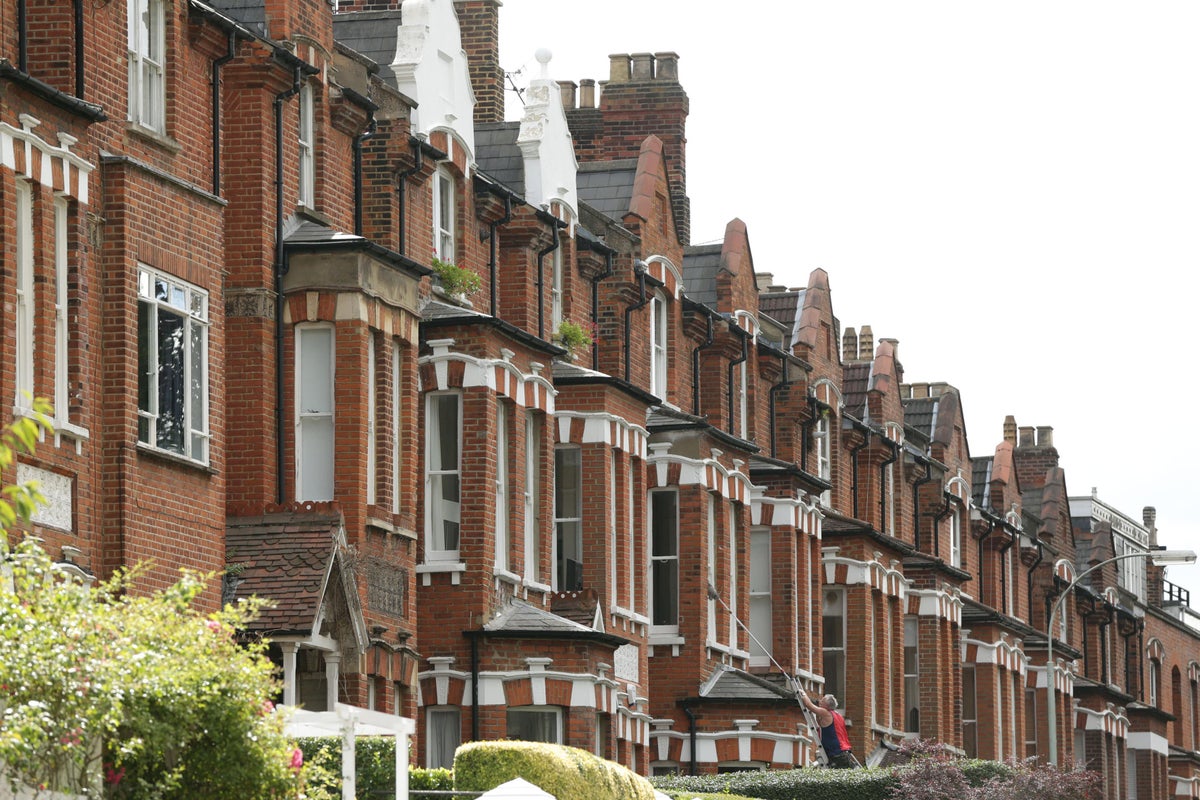The housing market has sprung a late-summer surprise, with lender Nationwide finding a chill blowing through it. If you’re a seller and that makes you sad, buckle up. This might only be the start of your problems.
Let’s look at the headline numbers first: the lender’s index recorded a surprise fall of 0.1 per cent on the month; economists had predicted a 0.2 per cent rise. The average price is still up by 2.1 per cent on the year, to a seasonally adjusted £271,079, although the rate of increase has fallen. The July average was 2.4 per cent higher than in July 2024.
Despite the market’s apparent cooling, Nationwide chief economist Robert Gardner said affordability remains “stretched” compared to long-term averages. Interest rate rises mean that the cost of servicing a mortgage is three times what it was during the pandemic. The typical first-time buyer property with a 20 per cent deposit faces monthly payments equivalent to around 35 per cent of their take-home pay, well above the long-term average of 30 per cent at a time when there are cost of living pressures across the board.
So should would-be buyers sit and wait for further falls? Well, the gorilla in the room is a Budget that’s probably going to feel like spending a week in an ice bath. Property is firmly in the chancellor’s sights. Note to Angela Rayner, with her new seaside home: this is going to hurt.
Both buyers and sellers know what’s in the wind. But so far they only have the usual leaks, spin and scuttlebutt to guide them. The number of mortgage approvals made to home buyers jumped to a six-month high in July, according to the latest Bank of England figures, which tells us that the market is lively enough. Chestertons, a large estate agent, however warned that “the number of properties coming onto the market has decreased”.
“Buyers will find it more challenging to secure a property within their budget and are advised to start their property search as early as possible,” said Matt Thompson, head of sales.
Now, you wouldn’t expect an estate agent to tell buyers to sit and wait. They want an active market. But does Thompson have a point?
Property taxes are a handy means of raising revenue for chancellors because they’re hard to avoid. With the government having promised not to touch the simplest ways of raising money – income tax, VAT and employee national insurance – property is an obvious target to plug the hole in the public finances.
The simplest option would be to hike stamp duty, paid when a property worth more than £125,000, or £300,000 if first-time buyers are involved, changes hands. However, the aforementioned scuttlebutt suggests that the government has been paying attention to some of the proposals tabled by think tanks and is looking at bigger, and more complicated reforms, to fill the Treasury’s coffers. Trouble is, almost all of them come with potential side effects.
One idea on the table is to remove the 100 per cent capital gains tax relief on pricier homes that are a seller’s primary residence, hitting owners with 24 per cent for higher-rate taxpayers and 18 per cent for lower-rate taxpayers, on any increase above what they paid when they sell up.
It isn’t clear at what level this would kick in. But the side effect is that it could dramatically cool the market, especially in the South East and London, where, in certain places, even a very ordinary terraced house can easily set you back in excess of a million.
Older people with larger properties who might otherwise consider downsizing may also be inclined to stay put to avoid a big bill. If this led to fewer properties coming to market, it would inevitably push prices higher.
Another report suggests that Reeves is considering a “national property tax”, an idea floated by think tank Onward. The annual rate would reportedly be 0.54 per cent on homes valued between £500,000 and £1m when bought, with a higher rate for homes above £1m.
This has been suggested as a possible replacement for stamp duty. However, I would be very surprised to see the chancellor sacrificing a guaranteed winner for something that would take time to yield the revenues she needs, and might again stop people from moving.
Then there is the idea of charging individual landlords national insurance on their rental income. This raises two potential problems. The first is that it could reduce the number of available rental properties through them giving up the ghost, squeezing supply and pushing up rents. The second is that those still in the game would likely raise rents to make good their losses.
Reforms to council tax have long been discussed given that levy’s many perversities. For example, properties next door to each other can be in different bands, even if the lower banded home has been radically improved since the last revaluation
The structure of council tax bands also means those on lower incomes are disproportionately hit. Trouble is, every time a government has mooted a revaluation exercise it has ended up retreating as the stories of old couples in relatively modest homes getting clobbered emerge.
So yes, while property taxes are an easy way to raise revenues, the law of unintended consequences applies. While you can certainly target wealthier people, a market-wide cooling could be the result if confidence is hit, even if just at the top end. And the wealthy also tend to make a lot of noise. No one ever said this was going to be easy for Reeves.
Which brings us back to today’s buyers, and sellers. I think Chestertons is likely right. The market is going to be chaotic in the run-up to the Budget and especially in the aftermath. So I’d be inclined to heed Thompson’s advice.

